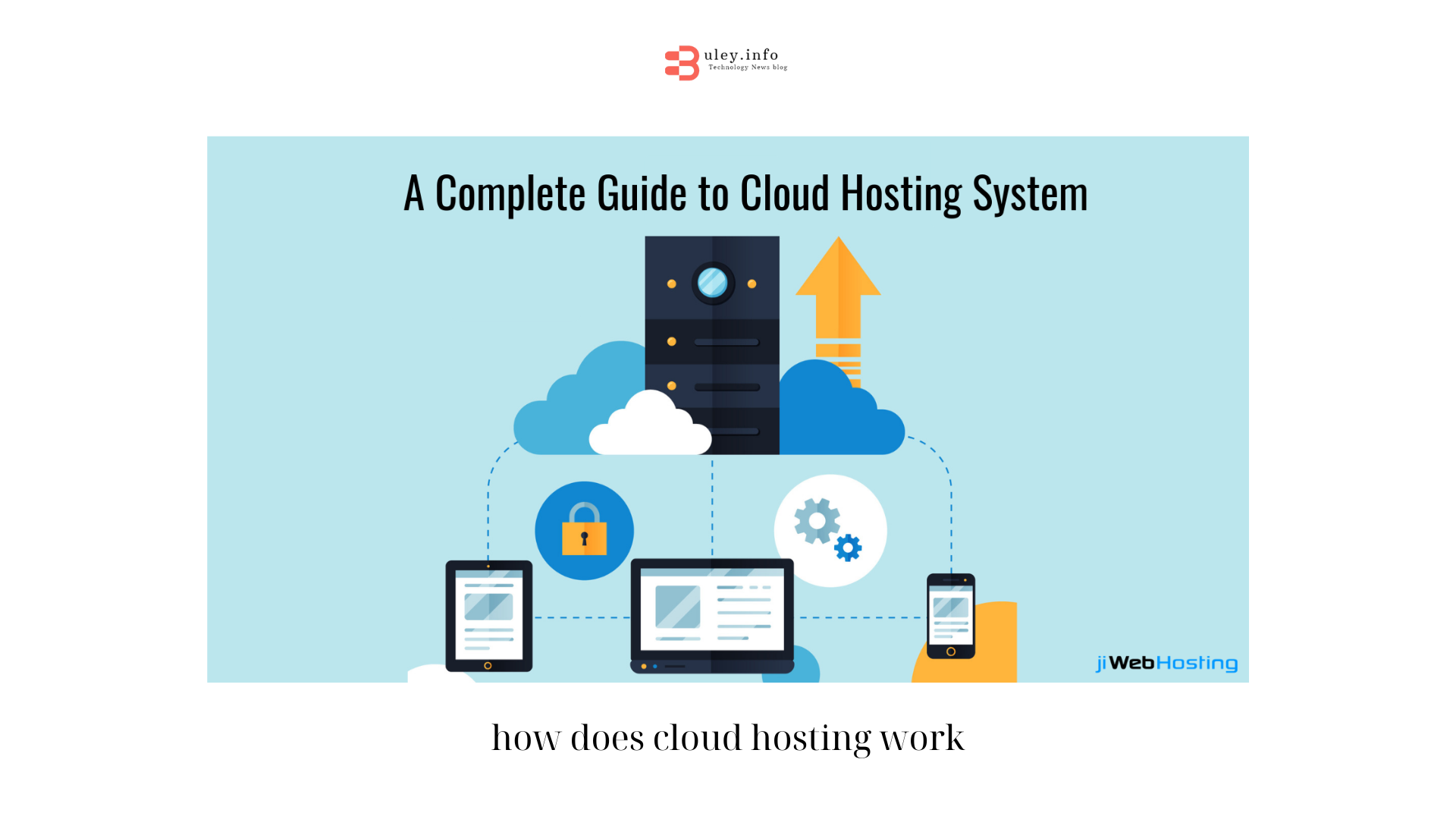Cloud hosting has revolutionized the way websites and applications are hosted and managed and it offers scalability, reliability, and cost-efficiency, making it a popular choice for businesses of all sizes. But how does cloud hosting work? In this comprehensive guide, Uley will delve into the inner workings of cloud hosting, exploring its technology, benefits, and key components.
How Does Cloud Hosting Work: A Comprehensive Guide to Understanding the Technology
- What is Cloud Hosting?
Cloud hosting is a type of how does cloud hosting work hosting service that utilizes the resources of multiple interconnected servers to host websites and applications. Unlike traditional hosting methods that rely on a single physical server, cloud hosting distributes the workload across a network of servers, often referred to as a “how does cloud hosting work.” This distributed architecture allows for better resource utilization, improved performance, and enhanced reliability.
- The Cloud Infrastructure
At the core of cloud hosting is the cloud infrastructure, which consists of a vast network of interconnected servers housed in data centers. These servers work together to provide the necessary computing resources, including processing power, storage, and how does cloud hosting work memory, to host websites and applications. The infrastructure is designed to be highly scalable, allowing for the seamless addition or removal of resources based on demand.
- Virtualization Technology
Virtualization plays a crucial role in cloud hosting. It enables the creation of virtual instances, which are isolated environments that function as independent servers. Virtualization software, such as hypervisors, allows multiple virtual instances to run simultaneously on a single physical server. This efficient utilization of server resources enables better resource allocation, increased flexibility, and the ability to quickly scale up or down as needed.
- Resource Pooling
Resource pooling is a fundamental concept in cloud hosting. It involves aggregating the computing resources from multiple servers into a shared pool. These resources, which how does cloud hosting work include processing power, storage, and memory, are dynamically allocated to meet the demands of hosted websites and applications. Resource pooling ensures efficient utilization of available resources and enables high availability by redistributing workloads in case of server failures.
- Load Balancing
Load balancing is another critical component of cloud hosting. It involves distributing incoming network traffic across multiple servers to ensure optimal resource utilization and prevent any single server from becoming overloaded. Load how does cloud hosting work balancers monitor the performance of servers and intelligently route traffic based on factors such as server capacity, response time, and current workload. This helps to maintain high performance and availability of hosted websites and applications.
- Scalability
One of the key advantages of cloud hosting is its scalability. With traditional hosting methods, scaling up or down would typically involve hardware upgrades or how does cloud hosting work server replacements. In contrast, cloud hosting allows businesses to scale their resources quickly and seamlessly. This scalability can be vertical, by increasing the resources allocated to a virtual instance (such as adding more CPU or memory), or horizontal, by adding more virtual instances to share the workload.
- Redundancy and High Availability
Cloud hosting offers how does cloud hosting work-in redundancy and high availability. Data centers hosting cloud infrastructure are equipped with redundant power supplies, network connections, and storage systems to minimize the risk of downtime. In case of hardware failures or other issues, the workload can be automatically shifted to other available servers within how does cloud hosting work. This redundancy ensures that websites and applications remain accessible and minimizes the impact of potential disruptions.
- Data Storage and Backup
Cloud hosting provides reliable and scalable data storage solutions. Data can be stored on distributed storage systems, such as network-attached storage (NAS) or storage area networks (SAN), which are accessible to all servers within the cloud. Cloud providers often implement data replication and backup mechanisms to how does cloud hosting work data integrity and protect against data loss. This redundancy and backup capability offer peace of mind to businesses by safeguarding their valuable data.
- Cost Efficiency
Cloud hosting offers cost advantages over traditional hosting methods. With cloud hosting, businesses only pay for the resources they actually use, rather than investing in and maintaining their own physical infrastructure. Additionally, the scalability of cloud hosting allows businesses to adapt their resource allocation as needed, avoiding overprovisioning and unnecessary expenses. This pay-as-you-go model makes cloud hosting a cost-effective choice for organizations of all sizes.
- Security Considerations
Security is a top priority in cloud hosting. Cloud providers implement robust security measures how does cloud hosting work and infrastructure. This includes physical security measures at data centers, such as surveillance systems and access controls, as well as network security, encryption, and authentication mechanisms. It is important for businesses to choose reputable cloud providers and follow best practices for securing their applications and data within the cloud environment.
In conclusion, how does cloud hosting work? Cloud hosting has transformed the way websites and applications are hosted by leveraging distributed resources, virtualization, scalability, and redundancy. The cloud infrastructure, virtualization technology, resource pooling, how does cloud hosting work balancing, and data storage mechanisms work together to provide businesses with a reliable, flexible, and cost-efficient hosting solution. Understanding the inner workings of cloud hosting empowers organizations to make informed decisions and leverage the benefits of this technology to drive their online presence and business success.





